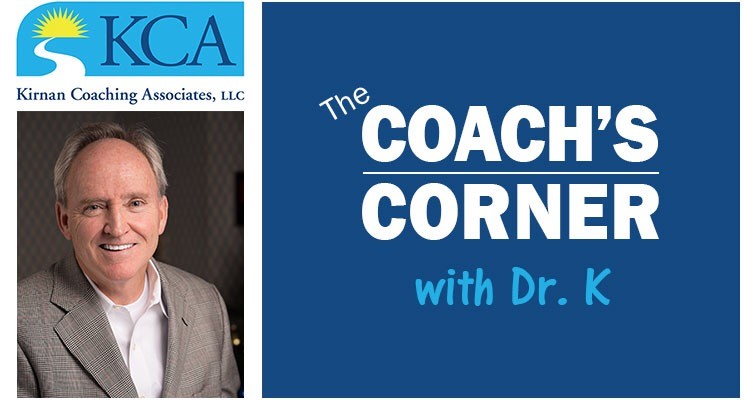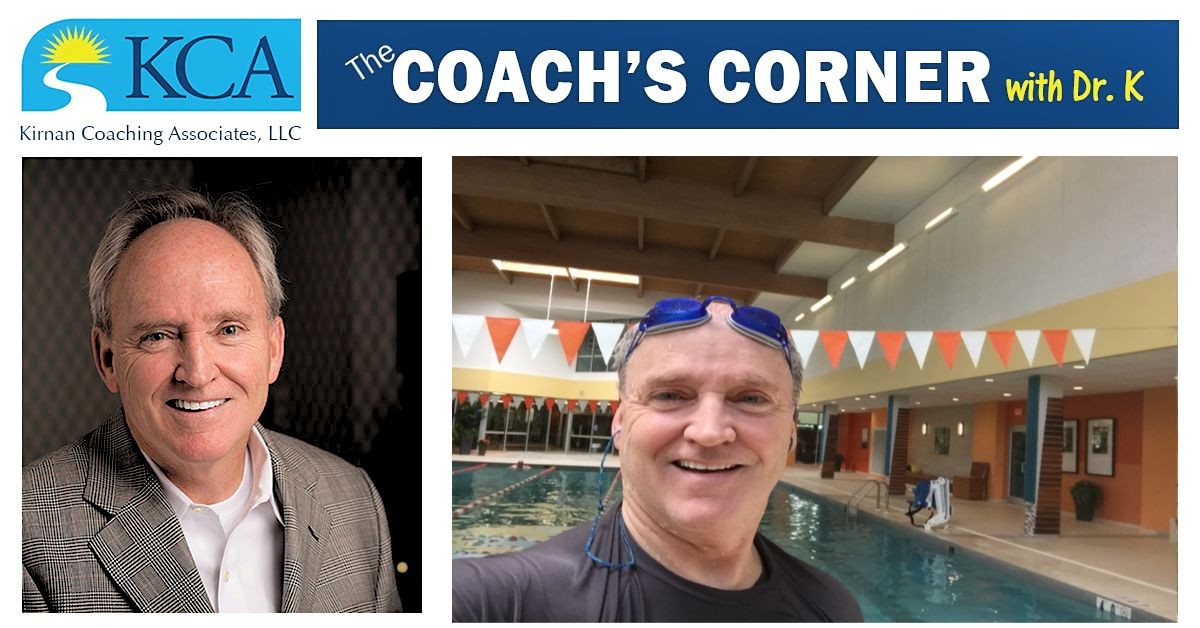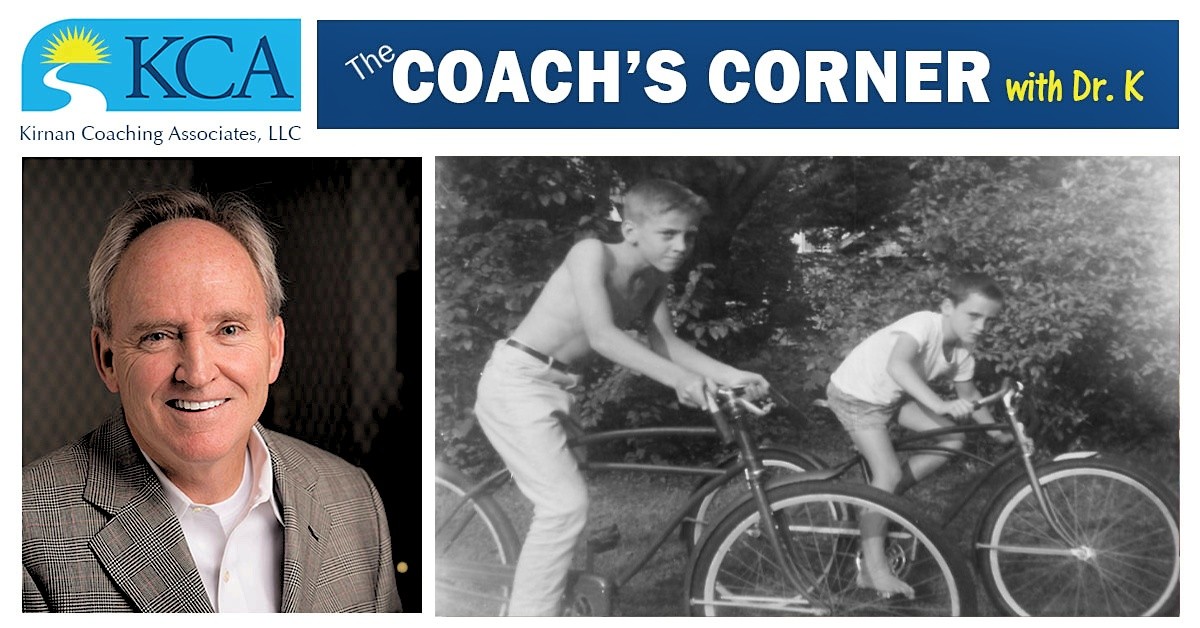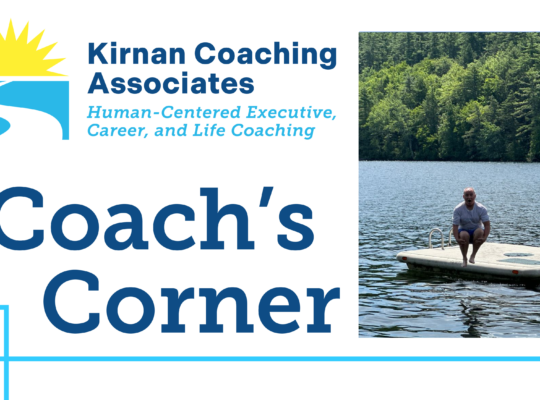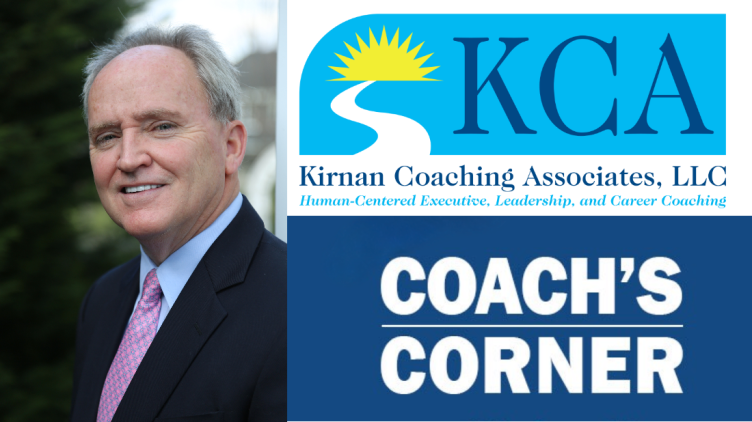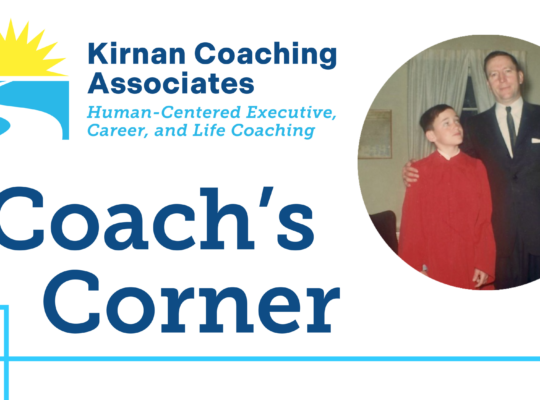“If the cabin pressure’s changing, you know that we won’t be leaving you hanging. Pull your mask down first. Don’t worry, oxygen flows. Tighten the straps after placing on your mouth and nose. If you’re traveling with someone like a child for instance, put your mask on first before offering assistance.”
Virgin America Safety Video
“Jack, how can you expect to be able to help your Mom or anyone else you want to take care of if you don’t take care of yourself?”
My friend Frank

The Oxygen Mask as a Metaphor for Daily Life
This final week before the Christmas Holiday reminds me of the mandatory drill we always witness moments before takeoff on an airline flight. You know, where the flight attendants demonstrate all the safety features of the plane and what each passenger’s responsibility is in case of an emergency. We hear that voice over the plane’s sound system “If the cabin pressure’s changing…, put your mask on first before offering assistance.” While putting on the oxygen mask is potentially a life changing act in a real emergency, it is also a powerful metaphor for the many moments in our lives where we feel as if we cannot breathe. Those moments in life or in the office where we feel that we are already running as fast as we can but where our internal treadmill keeps telling us to run even faster. Often, those moments resemble the experience of the marathon runner who upon “hitting the wall” at mile 20 meets growing physical, mental, and emotional resistance and struggles to finish the race. I’ll bet many of us would admit that there are many times during a given day when we too want to grab the oxygen mask and just breathe.
During the Holiday season, things get even more hectic. Our “To Do Lists” seem to grow as we get closer to the big day with so many questions that demand answers like did I remember to set up all the decorations and ornaments? Who did I forget to buy a present for? When will I need to pick up different family members at the airport or train station? Then, there are the normal demands of everyday life that become even more difficult to juggle during the Holiday season like who will be picking up the kids or grandkids or dropping them off to yet another after-school or weekend sports activity; or the family member or friend who needs to be taken to the doctor’s office; Finally, there’s the work environment during Holiday season which has an anxiety-inducing rhythm of its own like whether to attend the firm’s Holiday party, all of those the year-end performance assessments that must be done, the endless budget meetings, and the core strategic account reviews to name just a few.
Grabbing our oxygen mask is a powerful reminder of just how important regular and consistent self-care is to our overall health and wellness. There’s no limit as to how frequently you can grab your oxygen mask other than the limits you impose on yourself. It’s perfectly ok to grab your mask as frequently as you need to and not just in those emergency situations described in the Virgin America Safety Video. This metaphor of the oxygen mask really hit home for me a few weeks ago when I sat down for lunch with one of my oldest, dearest, and most trusted friends. As we sat down and began to catch up on things, Frank looked up at me and said “Jack, how can you expect to be able to help your Mom or anyone else you want to take care of if you don’t take care of yourself?”
It was a powerful moment and message for me to embrace because the reality is that none of us can really help those we love and care for if we ourselves are run down physically, emotionally, and yes, even spiritually. 2018 has been a real challenge for our family as both my Mom and my father-in-law battle dementia. It’s a debilitating disease and it drains the energy of family members who care for their loved ones suffering this horrible disease. I often remark to my siblings, my children, and my colleagues how grateful I am that I have a long ride home after I visit my Mom or my father-in-law because I know that I need extra time to decompress and to reflect on what just happened during the visit and how the visit made me feel. Frank’s heartfelt concern for me about the importance of my own self-care has been further reinforced by the training I am receiving to become a certified Minister of Pastoral Care which I will complete in April 2019. If we become physically, psychologically, emotionally, and spiritually run down and don’t listen to what our mind and body are telling us, then we won’t be able to be the caregivers we want to be and expect to be to our children, our spouses/significant others, our other family members and friends, or to the many colleagues at work who are counting on us to be their mentors and leaders. But, if we can learn to put on our oxygen mask and embrace specific strategies that can enhance our wellness and overall self-care, everybody all around us will benefit, especially those we love and want to help.
A Quick Self-Care Assessment Exam
To start with, consider asking yourself some basic, self-care questions that relate to your physical self, psychological self, social self, and spiritual self. How you answer these basic questions can help guide you in considering some of the specific strategies and tools that might be of help to you that I detail below:
- Physical Self — Do you take care of yourself because no one else does or are you too busy to focus on your physical self? And, what indicators do you rely on to assess the adequacy of whether your care needs for your physical self are being met?
- Psychological Self — How would you describe the care of your psychological self and what indicators do you rely on to assess whether the care needs of your psychological self are being met?
- Social Self — How would you describe the care of your social self and again, what indicators do you look at to assess whether those care needs of your social self are being met?
- Spiritual Self — If relevant to your life, how would you describe the care of your spiritual self and again, what indicators would you rely on to assess whether those care needs of your spiritual self are being met?
Effective Strategies to Support Your Self-Care
Given that we all have a responsibility to ourselves, our families, the organizations we work for, and to other people in our flock who are most in need, it might be helpful to consider adopting specific coaching strategies which like the metaphor of the oxygen mask, can help us breathe in moments of heightened anxiety, stress, confusion, and even the “compassion fatigue” that often accompanies the various caretaker roles we take on in daily life:
- TAKE STOCK OF WHAT’S ON YOUR PLATE — A good place to start assessing your self-care status is to undertake a non-judgmental inventory of all the demands impinging on your time — i.e., all the demands from work, family, home, health, and your volunteer activities? Then, identify what are the main stressors in each of these components of your life?
- LEARN TO SAY NO SO YOU HAVE MORE FREEDOM TO SAY YES — This is arguably one of the hardest things to do but once you’ve assembled your list of stressors from the above inventory, look it over to see which activities and people you interact with who you know are draining your energy. Then, ask yourself whether you could be happier by saying no to some of the activities and people you have identified. And, in doing that, you may find that you now have an opportunity to say yes to things which you may have avoided because you literally had no degrees of freedom in your daily schedule. Sometimes this task is made easier if we remind ourselves that no one can be all things to all people. By saying no to someone or some activity, we are saying yes to ourselves in a powerful way and that we do matter!
- PRIORITIZE YOUR TO DO LIST — Multitasking is a terrific skill set because it means you can juggle between different tasks but that doesn’t mean that you are being as mindful as you can possibly be to what your priorities are. When I get stressed out by the length of my own To Do List and either its lack of focus and/or prioritization, I remind myself of the lyrics from that great Simon & Garfunkel song The 59th Street Bridge Song (aka Feelin Groovy) — “Slow down, you move to fast, you’ve got to make the morning last”. Slowing down and allowing yourself to just breathe can help you become more mindful and deliberate about the choices you will make on any given day.
- START A SELF-CARE IDEA LIST — I often ask my friends, family members, and clients what their favorite self-care strategies are and I am amazed by some of the great ideas they share with me so I started keeping a list. You could even ask your colleagues at work for their favorite strategies and add their ideas to your own unique Self-Care List. As you build your Self-Care List and share your self-care ideas with others, consider adopting 1 or 2 ideas from the list for your own life and commit to implementing them. One new thing from my own Self Care List is to spend at least 15 minutes a day watching YouTube video clips of some of my favorite comedians when I was growing up. My wife has told me on several occasions that she can actually hear me laughing from her office on the second floor of our house and then she’ll ask me “Jack, what are you laughing at that was so funny?” Laughter always makes me feel better about whatever else may be going in my day.
- GET OFF THE GRID — Here’s a difficult one for most of us but try choosing a specific time during your day to disconnect from your Smartphone and all of your electronic devices. Sure, globalization and the different time zones that we work in makes us feel like we must answer every text, every email, every phone call instantly but it may be helpful to consider setting some boundaries for our level of engagement. For example, consider crafting an automatic email message for specific times of the day where you know you will not be answering email; or, how about adopting an agreement with your spouse/significant other and family to not have any smartphones and electronic devices on the kitchen table during meals; or, why not consider scheduling a time in your day where you do absolutely nothing but just chill – maybe its just 10 or 15 minutes but how wonderful might that be? My wife and I when we were in graduate school at Fordham University used to take what we would call our 20 minute power naps — I still take them to this day and for those 20 minutes I am like the character in the movie Ferris Bueller’s Day Off who falls asleep in class from listening to Ben Stein’s Economics lecture with my drool and all! But, you know what — it works for me.
- REACH OUT AND TALK TO SOMEONE — See if you can find the time every day to make at least one phone call to someone who you trust and can vent to about what you are feeling in the moment. Calling someone is a great way to relieve the stress and anxiety you may be experiencing and can often energize you for the following day and beyond. I am always amazed and grateful at some of the more senior executives who I have the privilege to work with as their Executive Coach because I feel as if during our sessions they can talk to me in a way that they can’t with their employees, teammates, or direct reports. I think that same principle can apply with our own network of close friends, professional colleagues and mentors who we rely on for guidance and direction.
- EXERCISE, REST, AND DIET — Research shows that engaging in regular exercise, yoga, taking a daily walk, or practicing meditation can really be a game changer. Ask yourself whether you are getting enough rest on a consistent basis. I often try for 7-8 hours of sleep a night, which is a great target for me to shoot for as well as getting to bed earlier which for me would be before 11pm. Maintaining a healthy diet and knowing your pattern of what you eat and when you eat can be insightful as well. I am still trying to reverse many years of not having my breakfast until close to noontime and I eat way too many dinners well past 8pm which is not such a healthy practice — ouch! But guess what, I am going to keep trying to alter these habits because I know it is not conducive to my overall cardiac health.
- SPEND TIME ON RENEWAL ACTIVITIES — This tool is a great way to break up your day and treat yourself to an activity that you know will make you happy. Some renewal activities that really give lots of people great joy include: reading your favorite book; listening to music or playing a musical instrument; writing something in your journal and especially taking note of what you are grateful for; closing your office door for 15 minutes and just sit in silence; or, maybe its simply sharing a joke with someone at least once during the day. Many of these renewal activities can truly reenergize you for the rest of the day so see if there are any activities that might work for you.
- DELEGATE — When you draw up the list of stressors from the exercise noted above, ask yourself if there is anything on your list that you could delegate to someone else. If nothing pops up, ask yourself who would you delegate your most important things to if you suddenly became ill and were in the hospital for a couple of weeks? For many of my coaching engagements, my clients will do the KCA Time Management Exercise that breaks down their day into 4 Quadrants – Quadrant 1 (Urgent & Important), Quadrant 2 (Non-Urgent & Important), Quadrant 3 (Urgent & Not Important), and Quadrant 4 (Non-Urgent & Not Important). Clients quickly build awareness of where they can delegate specific tasks and also identify the time wasters, distracters, and interrupters in their schedule which frees up more time that they can now spend in Quadrant 2 where goal setting and planning primarily take root.
- SPIRITUAL ACTIVITIES — For those individuals where spirituality plays an important role in your life, consider attending a weekend retreat to give yourself the gift of some sacred space outside your normal routine. Retreats, whether directed or the silent retreats run by the Jesuits as an example, can be a truly transformational experience and give you more confidence to hit the reset button in the manner you are seeking. I have attended both types of retreats and they are game changers in my view.
- YOUR TRANSITION FROM WORK TO HOME — One area often overlooked is the transition time between your work environment and your home environment. So, ask yourself if there is a transition routine already in place that is working for you? I used to always complain to everyone about my long train commute from Princeton to NYC when I worked in the financial services industry for over 25 years. Yet, looking back, I now realize that my train ride into the city helped prepare me for the day ahead while the commute back home allowed me to decompress before my car pulled into the driveway almost 2 hours after having left my office. You might even ask yourself if your mood would improve by changing into casual attire once you get home from work? For me, it usually depended on how either hungry or tired I was but enhancing your awareness of transitions between the two environments can make a big difference.
- TAKING BABY STEPS CAN BECOME BIG STEPS — Remember the character Dr. Leo Marvin, the psychologist played by Richard Dreyfus in the movie What About Bob who tells his new client Bob Wiley played by Bill Murray about the importance of taking baby steps. Sometimes the overall goal one commits to seems overwhelming but when you can break it down into smaller pieces, it doesn’t seem as daunting. Baby steps are akin to a great Chinese proverb I heard just a few weeks ago — Dig where the ground is soft. Instead of picking the hardest or trickiest issue you want to change, pick something that you can easily visualize improving on. For example, I’d like as part of my self-care focus to go for a 5-minute walk every lunch hour and then I can build it up from there. Or, at work, maybe I can focus on the client who seems most receptive to a change versus the client who is more defensive and close-minded about potential changes.
Good luck in grabbing your oxygen mask and in evaluating whether any of the coaching strategies mentioned above can enhance your own self care can work for you. Wishing my family, friends, and coaching colleagues a blessed Holiday season and much hope, health, and happiness in the new year.
Blessings,
Dr. K

